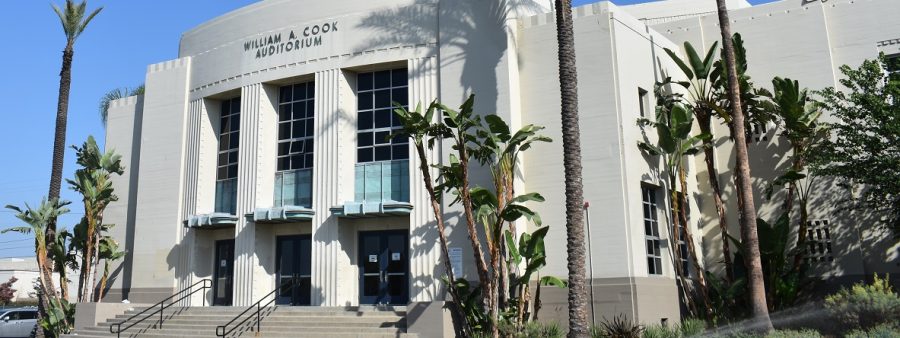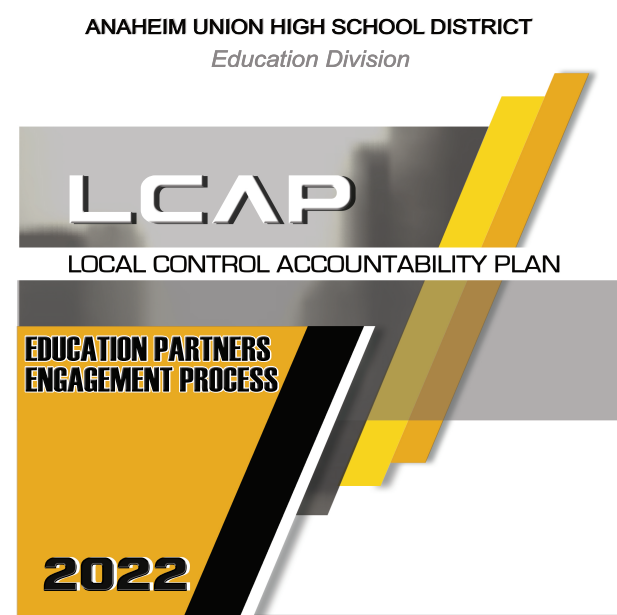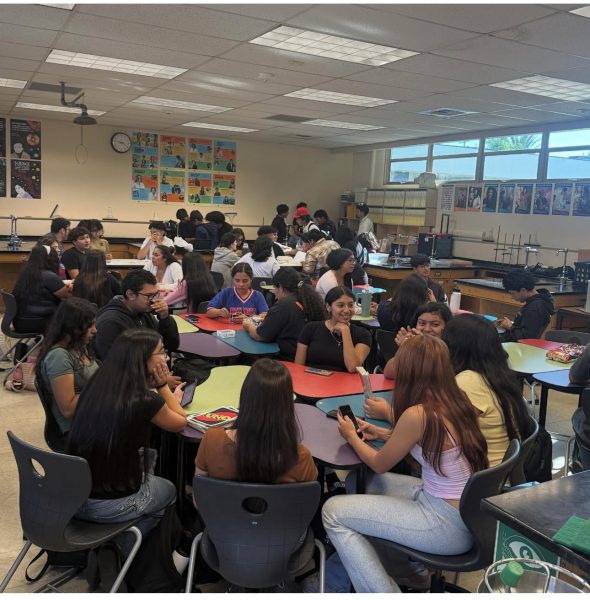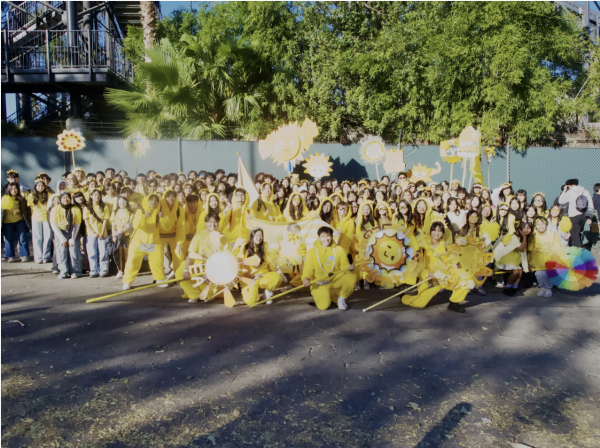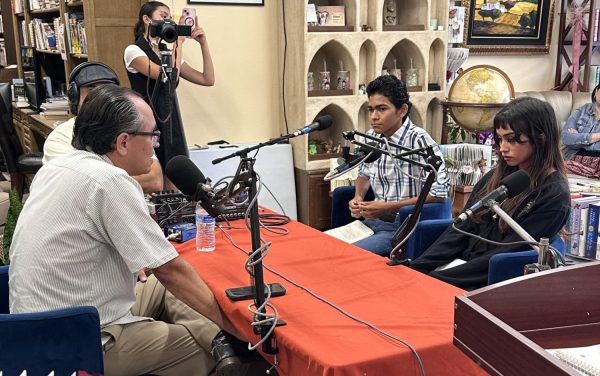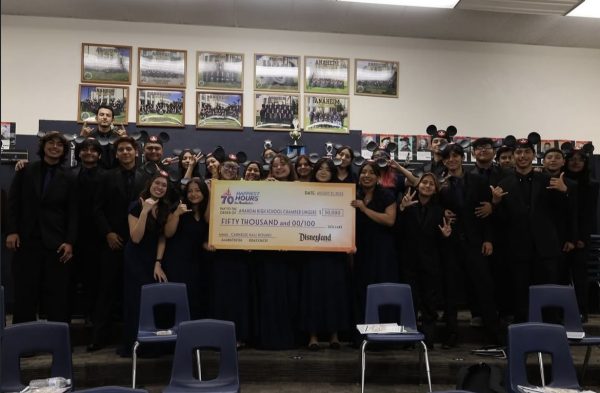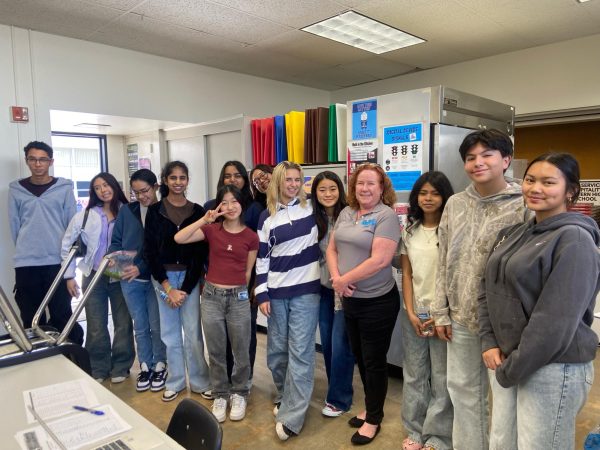AUHSD’s LCAP Process Recap
Educational partners of the AUHSD school district (students, parents, community members, and staff) were invited to collaborate on the 2022 LCAP process. The Local Control Accountability Plan process takes place every 3 years with the end goal of ensuring that the state’s funding formula for K-12 schools (LCFF) adheres to the needs of all educational partners.
Educational partners of the AUHSD school district (students, parents, community members, and staff) were invited to collaborate on the 2022 LCAP process. The Local Control Accountability Plan process takes place every three years to ensure that the state’s funding formula for K-12 schools (LCFF) adheres to the needs of all educational partners. These partners were given more explanation of the process during the LCAP Parent Orientation and the first LCAP meeting. To help the District better understand the priorities of all educational partners, four surveys were created for students, parents, staff, and community members. LCAP Booklets were distributed. The finalized 2022 LCAP Booklet can be found here.
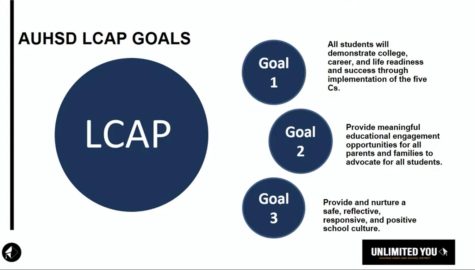
The five LCAP meetings were held in the District, the first being an introductory meeting for all invitees in the District’s La Palma Room. The invitee’s focus group determined the next three meetings’ locations. The four focus groups were to establish a better understanding and deeper discussions during LCAP. The eight California State priorities were joined with common priorities to create each focus group.
Although Focus Group 1 talked about the basic needs and services of the District, like infrastructure and more material aspects of schools, it also had many specific conversations about a variety of topics such as “The number of Chromebooks available to students district-wide, expanding current internships opportunities…, student to teacher ratio, and strengthening the WIFI systems at schools…”, according to student ambassador Sebastian Matta. As a first-time attendee of an LCAP process, he considered his expectations met when he expressed that, “Everyone’s voice was valued and listened to, especially the student voices.”
Focus Group 2 was a lot different than the other groups because it was completely online and had a variety of focuses: State Standards, Pupil Achievement, Course Access, and Other Pupil Outcomes. The group’s online setting is relatively new due to the last LCAP being completely online due to the pandemic. This year, a new online group was introduced to provide parents and other community members with a way to be involved in the process without physically attending. Focus Chairperson Amanda Bean explained that the group had fewer conversations and more comments and feedback through the online chat. Although this approach may seem unproductive, it was still a very successful group that helped provide valuable opinions on the process.
Focus Group 3 was led by Anaheim High School’s community schools coordinator: Tanya Garcia. The focus group’s goals are summarized in its title, “Parental Involvement.” Just like most of the other focus groups, Mrs. Garcia saw many students in her group taking charge of creating draft actions and leading discussions.
Focus Group 4 focused on pupil engagement and school climate. It had many conversations on how to help students, especially with their mental health, directly and by, “Having teachers be more…resourceful to the students…”, according to future Gilbert High School ambassador Michael Flores. He felt that his group was engaging and open to student opinions throughout the process.
This process was described as unique to the Anaheim district because, as Mrs. Garcia explained, “We really do value the feedback and suggestions that our educational partners have to say.” Compared to the “very detached” LCAP surveys from the school district her kids are in, Tanya Garcia emphasizes how incredible this opportunity is because of the recognized value in all opinions relating to the District’s schools.
Although each group had different goals in mind, there were two main consistent parts of all groups. The first is that all groups would primarily focus on targeting the educational needs of English learners, SWDs, Foster Youth, and McKinney Vento (students classified as homeless) kids. The process took all students into account and emphasized considering all student circumstances.
The second consistent element in these groups was the level of involvement. Many longtime attendees of the process emphasized that a critical difference between this year’s and last LCAP’s virtual process was the number of people who attended (including students) constantly asked questions, voiced opinions, and had discussions. This LCAP, in particular, stood out because students led the majority of the conversations. Many of these younger attendees expressed that they genuinely felt heard during their discussions.
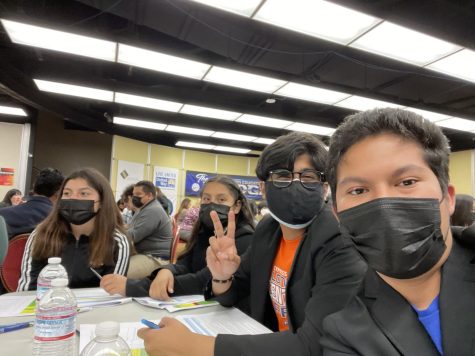
During the last meeting of LCAP, all the groups reunited to see the LCAP Draft Actions and the updated AUHSD 2022-23 LCAP Planning Tool. The Planning Tool listed off all of the goals alongside the actions and services employed to complete these goals. These specific goals also have budgeted expenditures that were updated or added by following the draft actions.
The LCAP Draft Actions had all the most important, decided by vote, draft actions, whether they were added to LCAP, and how they were implemented. Green boxes indicated that they were fully integrated, yellow meant they were included with some revisions (like a slight change in wording), and red meant they would not be included.
The only red item listed in the LCAP Draft Actions was the fourth one, “Teachers will work with a group of students at a ratio of 20:1 so that students receive more individualized instruction that will meet their needs and ensure a greater academic achievement.” The action was rejected because the campus sizes make it physically impossible. Still, the request for lower classes is noted in the current LCAP. The overall purpose of meeting the needs of students is filled in many actions that were passed.
Your donation will support the student journalists of Anaheim High School. Your contribution will allow us to purchase equipment and cover our annual website hosting costs.
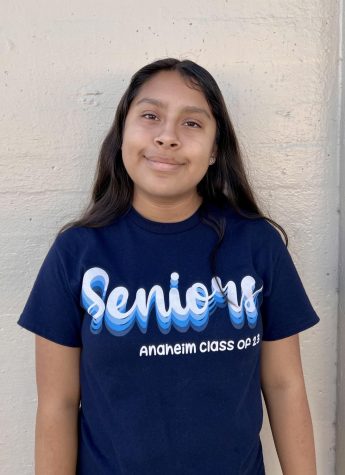
Evelyn Alonso is a current senior at Anaheim High School. She is both an AVID and DLA student with high aspirations for herself. She is a very determined...

